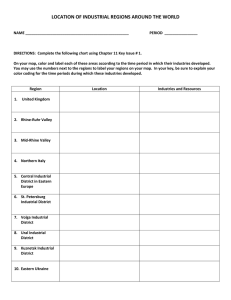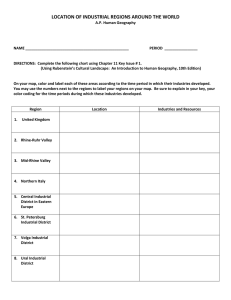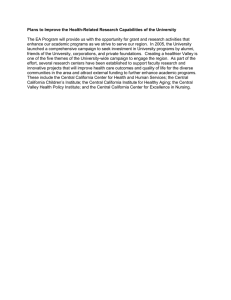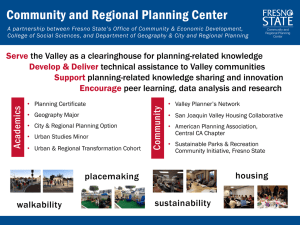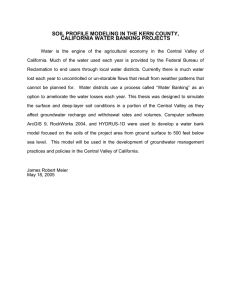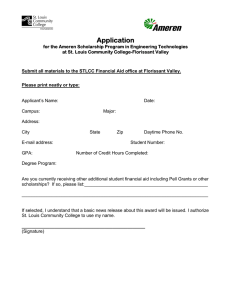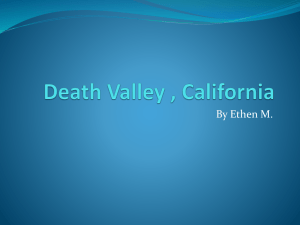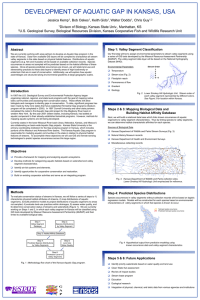Aquatic GAP program in Kansas Keith Gido, Walter Dodds, Chris Guy,
advertisement
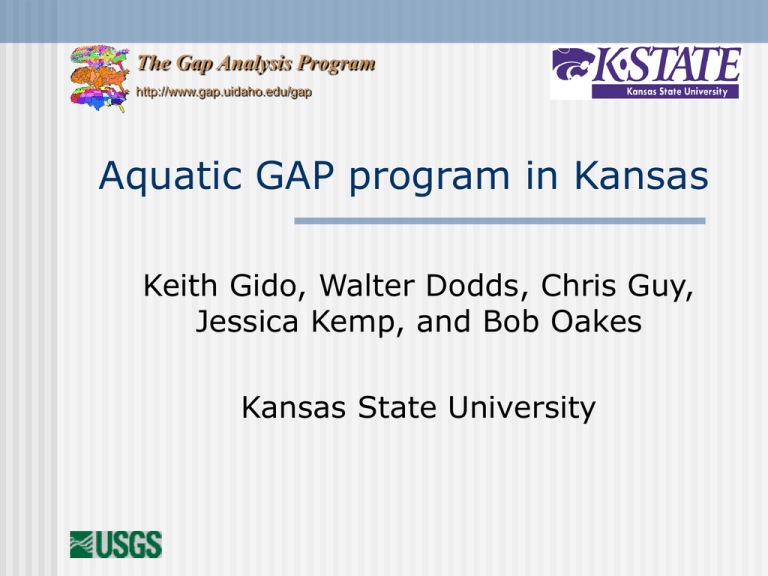
The Gap Analysis Program http://www.gap.uidaho.edu/gap Aquatic GAP program in Kansas Keith Gido, Walter Dodds, Chris Guy, Jessica Kemp, and Bob Oakes Kansas State University Objectives of Aquatic GAP Provide a framework for mapping and analyzing aquatic ecosystems Develop methods for categorizing aquatic habitats based on watershed and valley segment characteristics Identify at-risk systems and elements Identify opportunities for cooperative conservation and restoration Build on existing cooperator activities and serve as an integrating program Basin wide Inventory and Mapping for the Missouri River General Methods Valley Segment Datalayer Species Distributions by Valley Segments Habitat Affinity Database Predicted Species Distributions by Valley Segments Land use Water Quality Protection Level of Valley Segments National Hydrography Dataset (NHD) Valley Segment Classification National Hydrography Dataset (NHD) Valley Segment Classification National Hydrography Dataset (NHD) Valley Segment Classification Temperature Stream size Permanence of flow Gradient Geology Floodplain reach National Hydrography Dataset (NHD) Species Distributions KDWP Stream Survey Museum Records KDH&E Surveys Misc. Surveys by State, Federal, and Academic Institutions Building a relational database between valley segments and biotic elements Recorded occurrences of spotted bass + Valley segment characteristics = Predicted occurrences of spotted bass Potential Uses of GAP in Kansas Identify priority watersheds Clean Water Act Review of impact studies Stream lease program Education Ecological research Integration of physical, chemical, and biotic data from various agencies and institutions Final Product User-friendly web site for easy access
